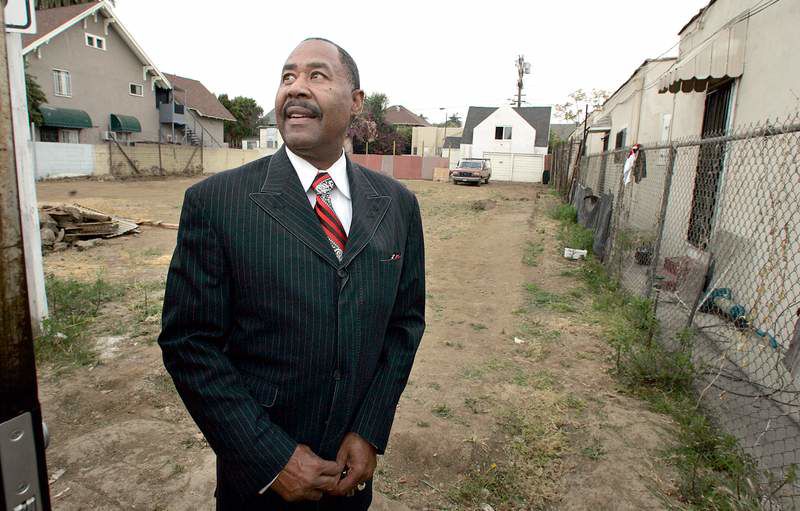Aging ministers take pride in passing on their activism
Published 5:00 am Saturday, June 27, 2009

- Curtis Monroe Jr., senior pastor at Redeemer Missionary Baptist Church, wants to build a youth center near his church in South Los Angeles. Monroe developed the project while in a University of Southern California program that trains ministers to serve with social gospels that advocate political activism.
LOS ANGELES — As they retired from South Los Angeles pulpits, civil rights-era ministers known as the “old lions” took with them a kind of social justice-oriented “Bible in one hand, newspaper in the other” Christianity that has been quietly fading in black churches.
Theirs was neither the popular “prosperity gospel,” which preaches that God will reward the faithful with material riches, nor the soul-saving ministry of televangelists and mega-churches dedicated to preparing people for Judgment Day.
It was a faith rooted in the hard work, civic engagement and political activism of the Rev. Martin Luther King Jr. It was nurtured in the struggles against segregation and police brutality.
It was no accident, some suggested, that a few high-profile, less-experienced ministers who took their places became entangled in financial and personal scandals, or started preaching breezy gospel messages.
But don’t count the old lions out.
Passing i
t on
They now shepherd a summer program at the University of Southern California’s Center for Religion and Civic Culture called “Passing the Mantle.” Now in its fourth year, it recruits and trains 35 ministers each year to serve with social gospels that advocate political activism.
Its seasoned teachers and mentors are led by the Rev. Cecil “Chip” Murray, 80, retired pastor of First AME Church, one of the oldest, largest and most prominent black churches in Los Angeles.
Leaning forward in his office chair to make his points, Murray smiled and said, “My generation of ministers does not tire easily.
“Our concern is that many of the gospels being preached today are designed for the ear, not the human condition,” he said. “Our goal is to share our knowledge and experience to help the next generation of African-American church leaders confront today’s challenges.”
Among those challenges are drugs, gangs, domestic violence, sexually transmitted diseases and a substantial demographic shift: In 1990, Hispanics and blacks each constituted 47 percent of the area’s population; today Hispanics outnumber blacks 2-to-1.
“Preaching salvation and praising the Lord — that’s easy,” said Najuma Smith-Pollard, senior pastor at St. James AME Church and a graduate of Passing the Mantle’s inaugural class of 2006. “Dealing with teenage prostitution, drug addiction, chronic unemployment, domestic violence — that’s serious work.
The nine-day program’s curriculum includes an overview of the role of the black church in America and lessons in developing neighborhood improvement projects, building coalitions, eliciting help from elected officials and navigating the court system.
Participants are required to develop a project to implement in their own congregations. Some graduates, for example, went on to work with local schools to create new guidelines for punishing difficult students.
‘Practical’ help
This year’s applicants include Curtis Monroe Jr., senior pastor at Redeemer Missionary Baptist Church, who for years has wanted to build a youth center on a vacant lot near his church in one of South Los Angeles’ most hard-pressed neighborhoods.
“I believe this program will give me the practical information I’ll need to effectively bid on the land when the time comes,” Monroe said, “then contact the right people — from Los Angeles City Hall on down — to build our youth center and establish after-school programs open to the entire neighborhood.”
That won’t be easy, even with expert advice, suggested J. Gordon Melton, author of “A Will to Choose: The Origins of African American Methodism.”
“For people who do not live in South Los Angeles, these are not flashy issues,” Melton said. “For those who do live there, they involve thankless, frustrating, often boring work, and countless hours in the offices of bureaucrats, begging for government assistance and charitable moneys.”






